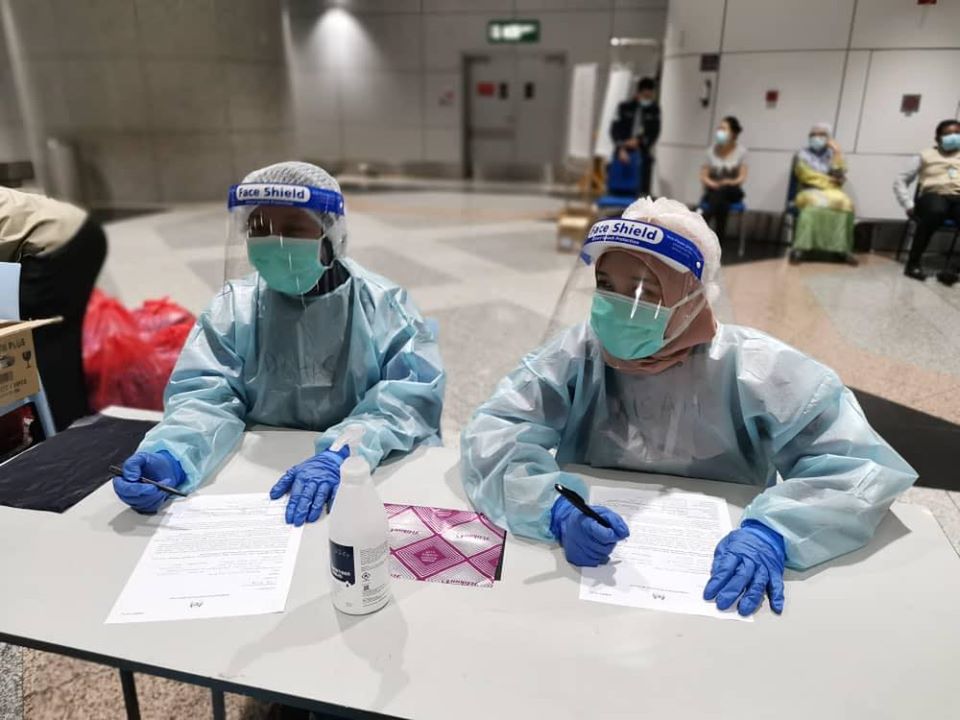KUALA LUMPUR, March 30 — The Ministry of Health (MOH) approved 14.9 per cent of home quarantine applications by overseas returnees this year, Dr Noor Hisham Abdullah said today.
In a statement by the Health director-general, he said 409 of 2,743 applications for home quarantine between January 1 and March 27 were approved.
Those who got the approval cited reasons including health problems (138 people), caregivers to travellers with health problems (109 people), history of being tested with coronavirus (14 people), used the Periodic Commuting Arrangement or Reciprocal Green Lane (14 people), children below the age of 16 years (23 people), had to make funeral arrangements for family members (14 people), elderly (five people), and other reasons which was approved upon risk assessment (92 people).
Meanwhile, the Health director-general said that 285 people from the total 2,743 applicants were given time off either to visit sick family members or to attend funerals of any family member.
“For those who applied to visit a sick family member or attend the funeral of a deceased family member, the traveller (Person Under Surveillance-PUS) will be given time off and will have to return to the quarantine station to meet the mandatory quarantine period,” Dr Noor Hisham said.
“All PUS are required to comply with strict standard operating procedures (SOPs) by MOH during the visit.”
The government has made it mandatory that all travellers returning from overseas have to quarantine themselves at designated quarantine stations.
“For information, travellers (Person Under Surveillance – PUS) who are undergoing quarantine are at risk of transmitting the infection to people around them.”
“Based on the National Crisis Preparedness and Response Center (CPRC) monitoring, there were 27 Covid-19 clusters involving index cases among travellers arriving from abroad with a total of 2,019 positive cases reported during the period between March 4, 2020 to March 26, 2021,” Dr Noor Hisham added.
From January 1 to March 27 this year, 61,931 travellers returned to Malaysia, among which 61,362 people (99.2 per cent) were sent to designated quarantine centres, 409 people (0.7 per cent) home quarantined, 31 people (0.05 per cent) quarantined at hospitals, and 29 people (0.05 per cent) were short-term business travellers.
Besides that, the Health director-general also stressed that although many countries have rolled out Covid-19 vaccines, vaccinated travellers entering Malaysia are still not exempted from mandatory quarantine.
“Accordingly, the MOH has decided on March 12, 2021 that a risk assessment should be carried out on travellers who have obtained complete Covid-19 immunisation and at the same time apply for quarantine exemption at quarantine stations.
“Criteria used in this risk assessment include evidence of having taken complete Covid-19 vaccination, travellers from low-risk countries, having a suitable place of residence for quarantine, including no risk of infection exposure to family members or household individuals, and negative Covid-19 screening test results.”
For those who meet the criteria, they are allowed to undergo mandatory quarantine at their own residence, but are subject to quarantine conditions set by the government to ensure that Covid-19 infection is not spread to others.
Recently, a Singapore Airlines pilot, S Mani Vannan, lashed out at MOH for practising double standards for not allowing him to home quarantine after returning from Singapore so that he could care for his mother who has cancer. MOH instead gave exemption to Deputy Federal Territories Minister Edmund Santhara, who returned from New Zealand, for home quarantine. Mani Vannan was reportedly fully vaccinated with the Pfizer-BioNTech vaccine.
A new United States Centers for Disease Control and Prevention (CDC) real-world study conducted among nearly 4,000 people in the US — most of whom were frontline workers and health care staff — showed that the Pfizer-BioNTech and Moderna shots, both mRNA vaccines, are 90 per cent effective in preventing any Covid-19 infection, including asymptomatic cases.








